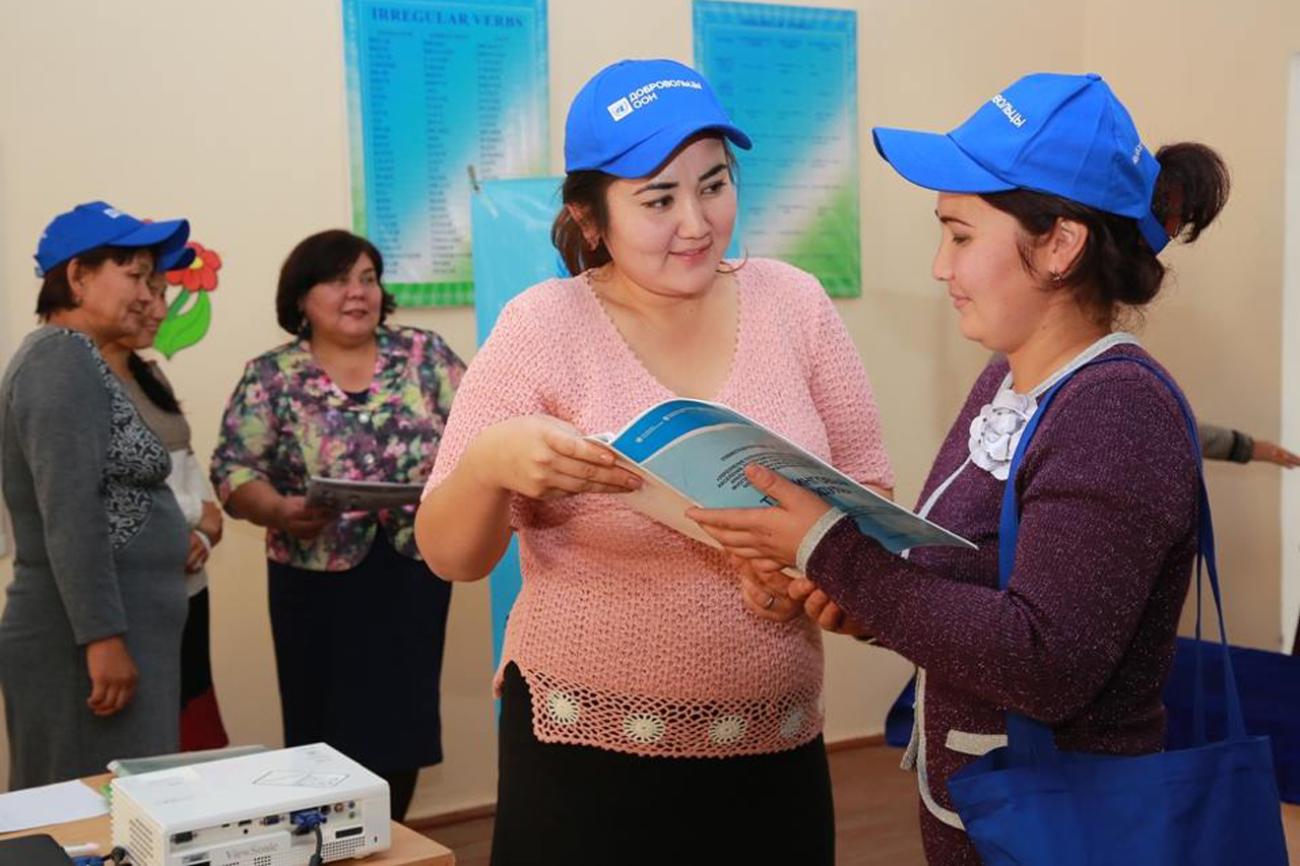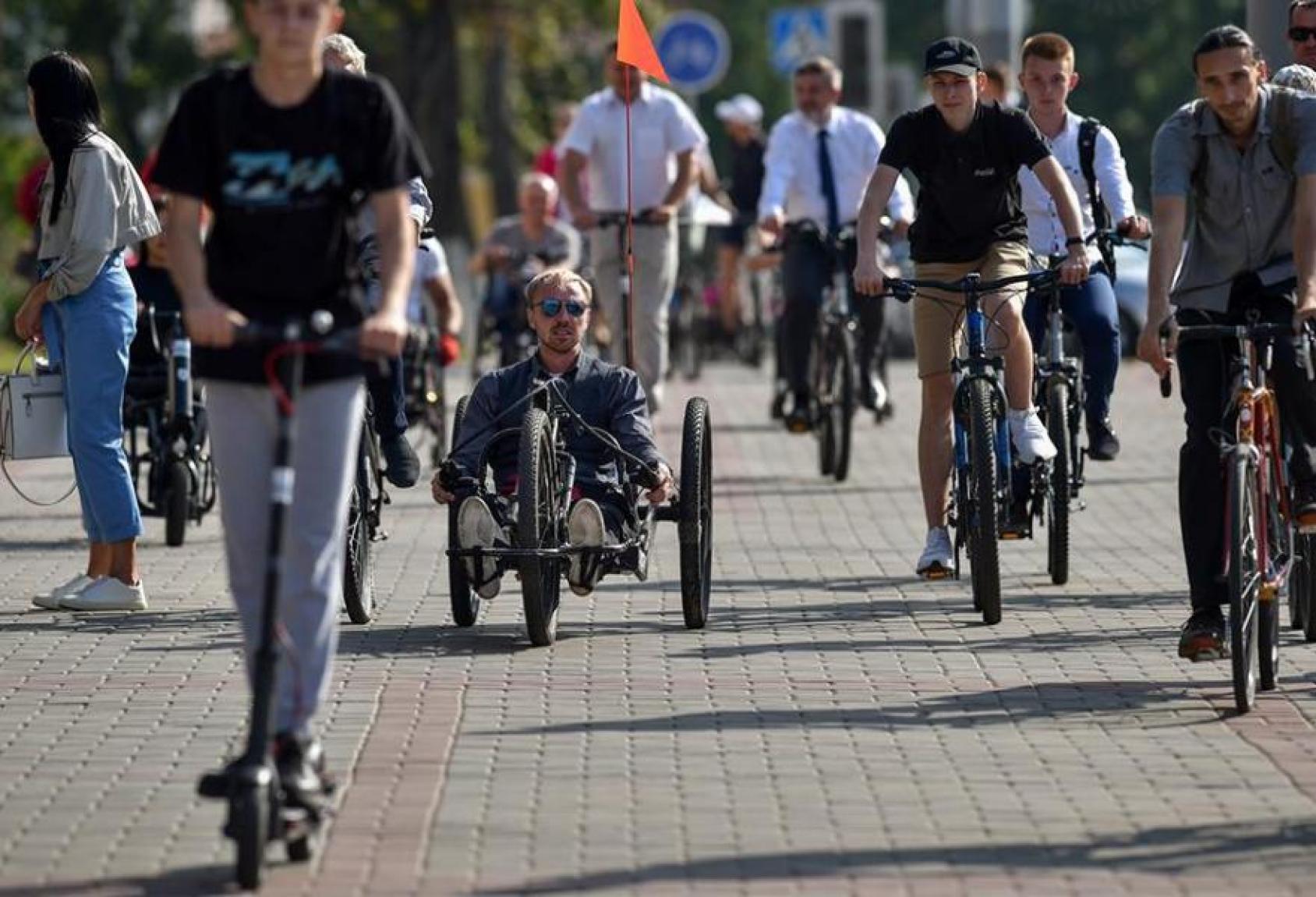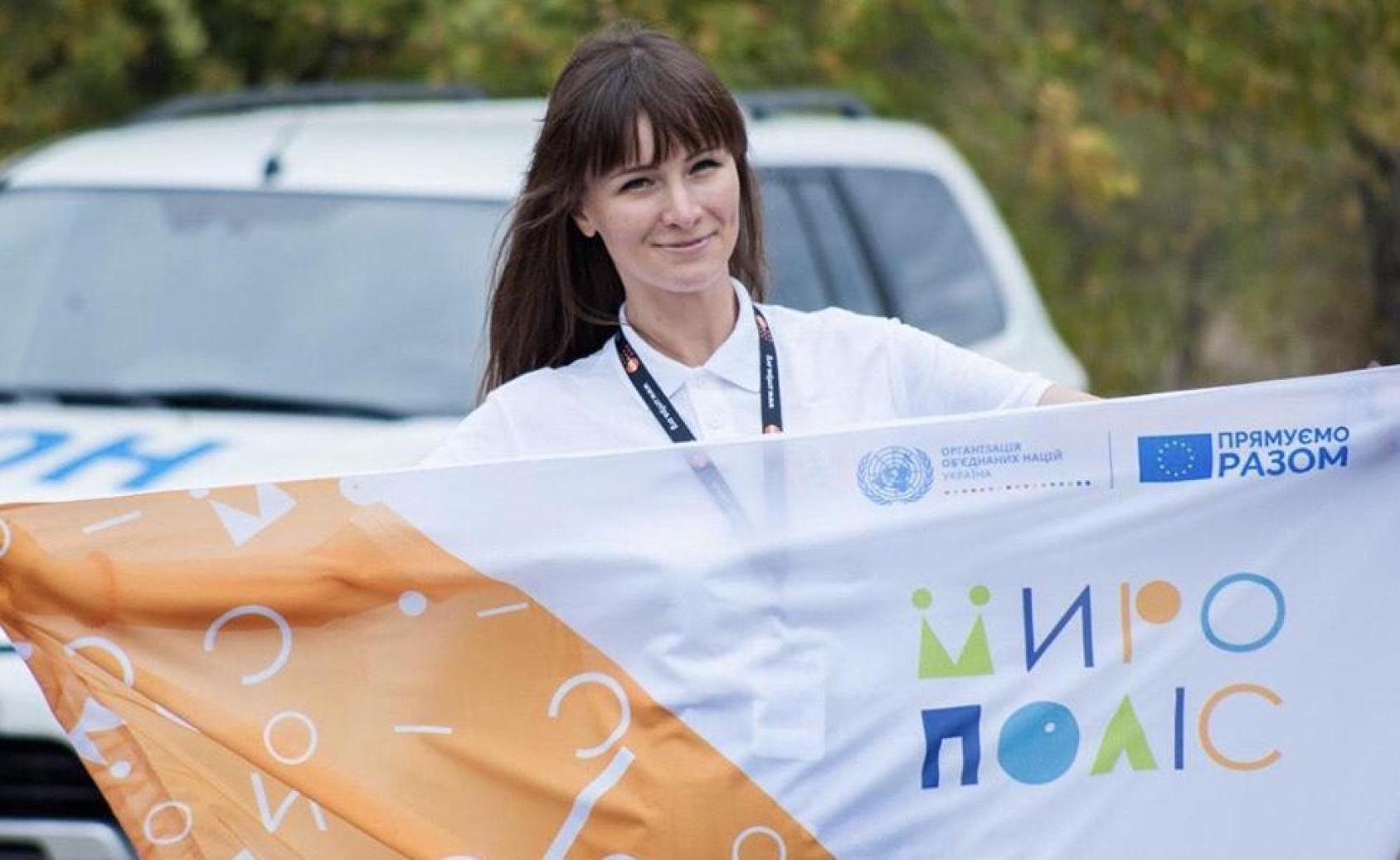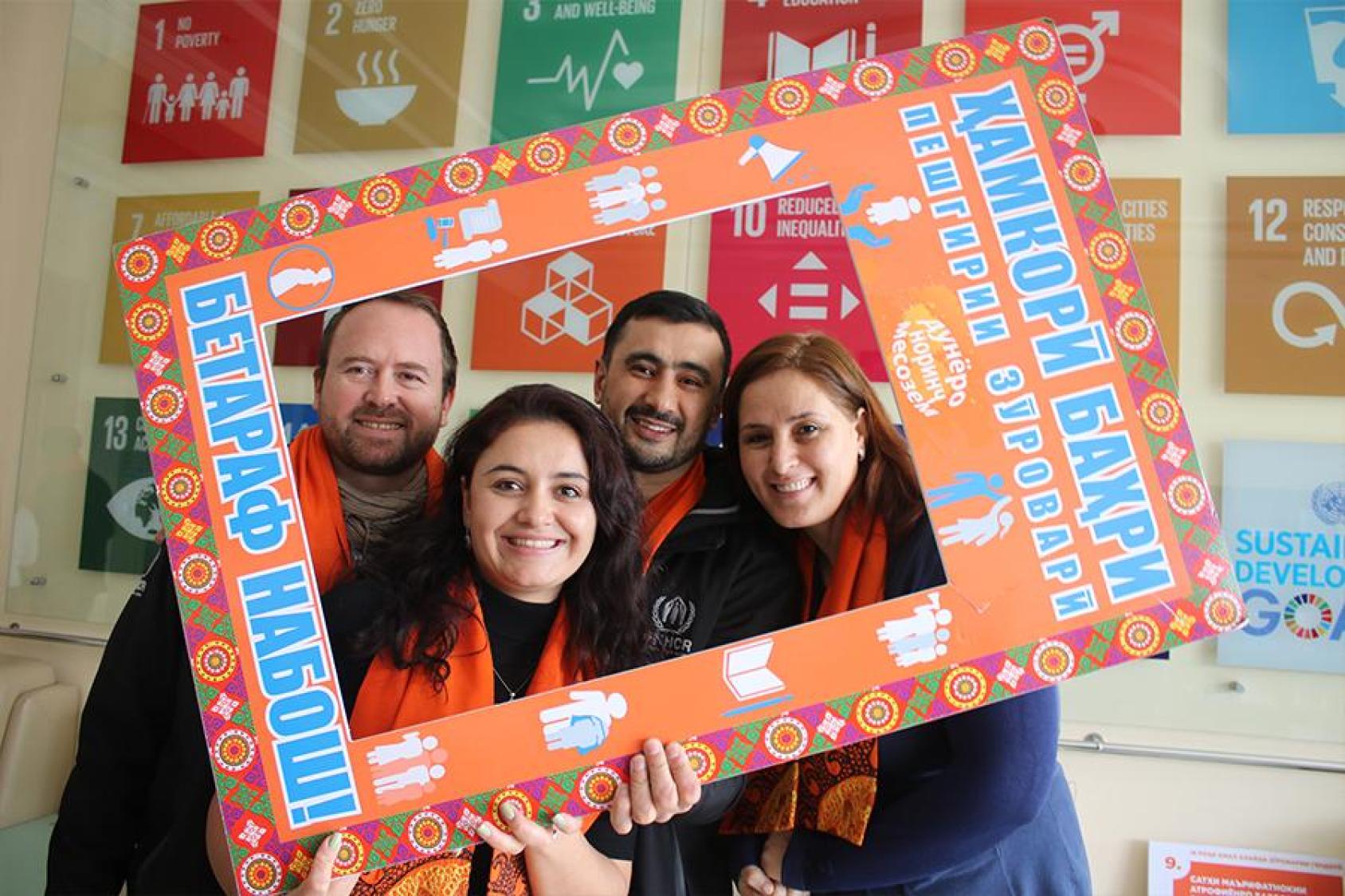UN Volunteers in Europe and Central Asia: Serving communities, fueled by passion

Every year around the world, thousands of volunteers from dozens of professional backgrounds join missions in different UN agencies to work in the field. All volunteers serving across 150 countries and territories are coordinated by an agency called UN Volunteers, or UNV for short.
Each UN Volunteer is different, but they all have one common denominator: the desire to make a difference in people’s lives.
With many different missions currently active in Europe and Central Asia, volunteers work in many areas from drug control to fighting social exclusion.
We spoke with three UNVs from across the region to find out what made them choose serving in the field over working from the comfort of an office.
Belarus: Opening paths for inclusive future

“Inclusion is our future,” says Aliaksandr “Sasha” Audzevich, former UN Volunteer Inclusion Specialist with UNDP Minsk. At the age of 26 Sasha got into a motorbike accident and lost the use of both legs.
Many disabled people are invisible in the society. As Sasha says, in Belarus, only 20% of people with disabilities have a job. “I am myself from a small town, and before the accident I had only seen people in wheelchairs on TV,” he says.
To change that, Sasha has been striving to remove barriers to inclusion, both physical and cultural. Some of his most recent projects include “Inclusive Barista”, which has already helped train and employ over a couple of dozen people with visible and invisible disabilities as baristas. He is also behind the YouTube mini-series titled “Who else if not us” talking about different life situations of persons with disabilities and how they solve everyday challenges – from applying for jobs to dining out in a restaurant.
After completing his one-year assignment with UNDP, Sasha now is eager to learn more about people living with disabilities around the world. In 2016 he did a personal trip on his handcycle from Belarus to Portugal, and now he is planning to tour the world and “raise disability awareness worldwide,” giving hope for an inclusive future to all those left behind.
Read the full version of Sasha’s story, previously published on the UNV website.
Ukraine: Teaching kids to negotiate for peace and recovery

Since 2018 the Myropolis Initiative (roughly translated as “city of peace”) served as a forum for youth of Donetsk and Luhansk. There local kids could come together and explore the ways to peace and recovery.
Olga Tsuprykova was a UNV serving with the United Nations Population Fund (UNFPA), and one of her first tasks was to coordinate the 2020 session of Myropolis to be held amidst the COVID pandemic.
“For me this assignment was special because I am native to Donetsk region. It was a great chance for me to contribute to peacebuilding processes in my native Ukraine,” she explains.
With her mentorship and support, Myropolis took place in a village school in Luhansk region gathering 30 local kids together. “I am in love with my projects,” says Olga. “Helping young people who live in remote and affected areas to unfold their potential is something special.”
Read the full version of Olga’s story, previously published on the UNV website.
Tajikistan: Supporting refugees amidst COVID crisis

“At such a difficult time for my country, I genuinely want to be useful and to help the most vulnerable – the refugees who are experiencing extreme hardship as a result of the crisis caused by the COVID-19 outbreak,” says Ruhafzo Nekushoeva, a UN Volunteer Protection Assistant with the UN Refugee Agency (UNHCR) in Tajikistan.
As the outbreak began, Ruhafzo was supporting her colleagues from WHO and UNICEF in preparing campaigns and disseminating multilingual materials, including in Dari, on prevention measures and restrictions.
“With the outbreak of the virus, our work within one strong multifunctional team has intensified,” says Ruhafzo. Later, despite her telecommuting arrangements during the quarantine, Ruhafzo continued compiling reports on profiling the refugee population, translating official letters, and directly assisting refugees.
Ruhafzo says, “For me, being a UN Volunteer is to have an opportunity to incite change and make progress now, when it is needed more than ever.”
Read the full version of Ruhafzo’s story, previously published on the UNV website.
This story draws on previously published interviews and material from UN Volunteers, Europe and Central Asia, to whom we address our special thanks. Editorial support by Maria Podkopaeva, Development Coordination Office (DCO). Learn more about the work our Country Teams do in Belarus, Ukraine, and Tajikistan, and follow their updates.













